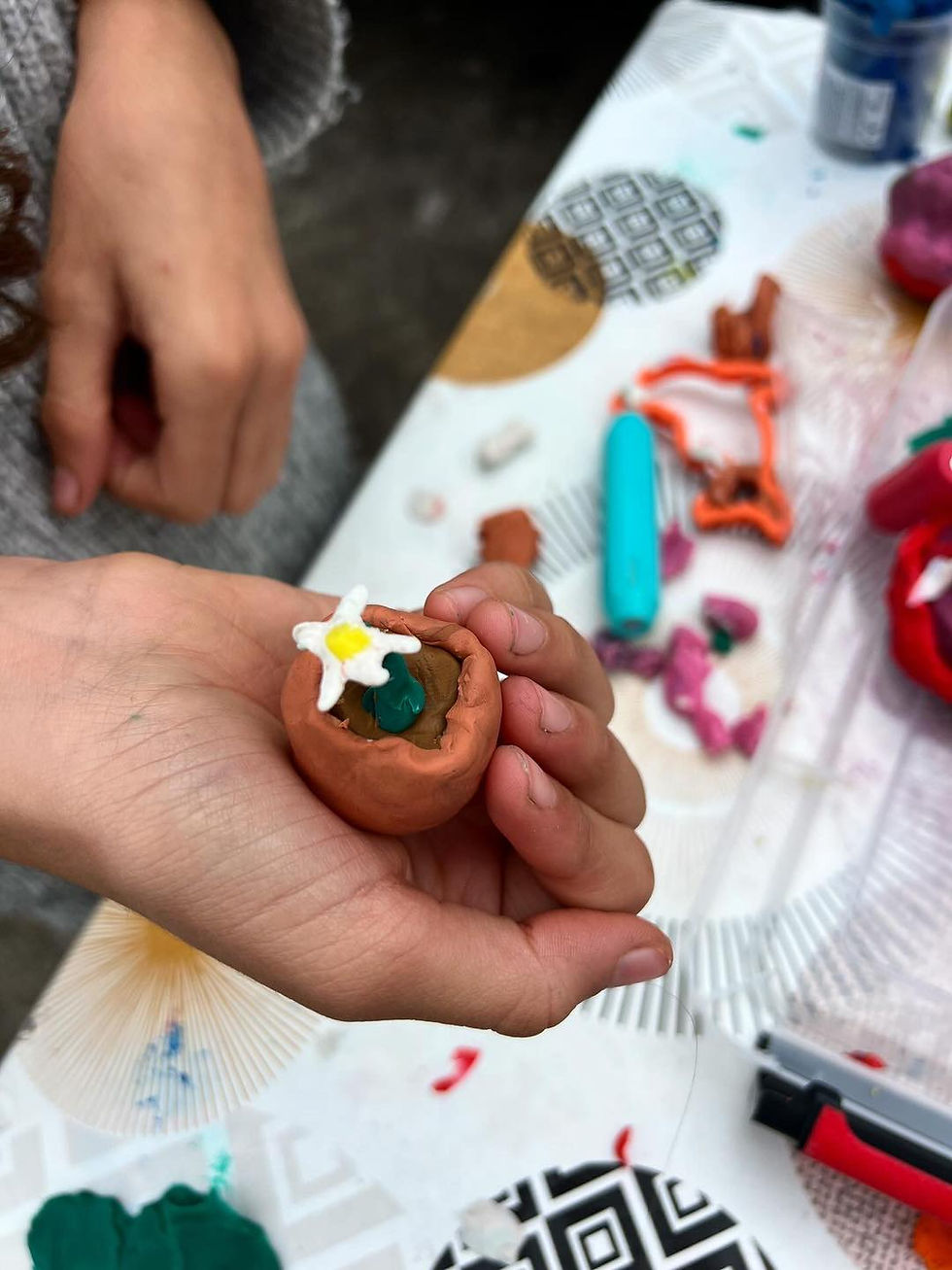Islands
- Art Refuge

- Nov 12, 2016
- 2 min read

Dunkerque & Calais
This week we started a new piece of work with our partners Medecins du Monde in Dunkerque refugee camp. This is a very different place from the large Calais camp – officially home to 1,100 people (but the numbers are higher), mostly identifying as Kurdish, along with much smaller pockets of communities – from Afghanistan, Pakistan, Vietnam.
A state-run facility and official camp, it is structured in its management and physical layout. The strip of land lies between a motorway and a railway line and as such is hard to access and isolated from nearby community and amenities. Shelters are wooden structures built to humanitarian standards by MSF back in March of this year but already showing signs of disrepair and leaks – they are worryingly not winterised.
In order to get to the Butterfly House (shared between the French Red Cross, Libraries without Borders and MdM) everyone has to navigate across the flooded ground that covers a large area of the space between the shelters. Once inside, the large container feels well organised, welcoming and warm.
We worked on Thursday afternoon alongside the MdM psychologists, mostly with families and children – trying to see what the rhythm of the space is and find out how to inhabit it well, responding to the challenges unique to this place. We were pleased to meet a few familiar adults from across our time in Calais amongst those using the space.
We were touched by interactions with very young children who delighted in connections – with the materials, with us, with home through the postcards, with each other. These were small things like gently blowing a feather or watching a twinkly cocktail stick twirl. There were also eruptions of frustration and anger but these were soon dissipated with enough responsible adults from the camp to ensure the space felt well held. Perhaps the children’s small constructions of island-like spaces most closely reflected the nuance of their current home.
On Friday we spent three hours walking across the cleared site occupied by the Calais camp only three weeks ago – locating in the earth the six sites where we have worked with so many people across the past year within this now brutalised landscape. We were distressed to see the thousands of mattresses from the shipping containers in a vast pile outside. Amongst the many smaller findings was the particularly poignant Leonard Cohen poem lying in the remains of the Eritrean Church.
In the afternoon we once again visited in hospital a much loved member of the Sudanese community for whom we share concern about his increasing isolation as friends are relocated across France. We have started to link him in with legal services as we continue to build on established connections and networks.
This is in a place where islands of information are in danger of remaining as such, now that the camp no longer exists.



Comments